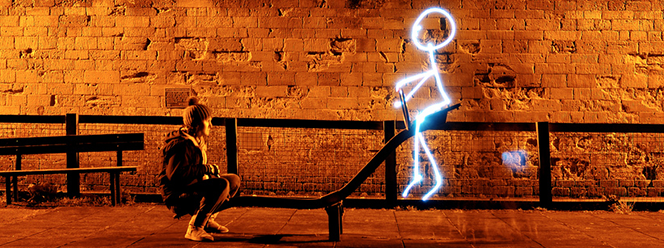
by Tara Joyce | Nov 11, 2016 | Cultural Creativity

Who was it that decided
It was cool to be cruel?
Who was it that instructed you
To cover up your envy.
With cutting words
Used to feel oh so clever.
Holding your balance
On the pedestal you’ve precariously perched on.
Hoping to tower over
Your item of envy.
They need to be smaller
Small, like you feel when you’re around them.
Small, like you feel.
When you forget how beautiful you are
You can be so very ugly.
Your cutting words
Will never leave you feeling valued.
Self-satisfied
Masturbated, perhaps.
Your ego safely tucked
Behind your manufactured cool.
Maybe they won’t notice
How insecure you are.
You’re more beautiful
Than you act.
It’s a shame
You don’t know.
How your envy leaves you exposed
To what’s behind your performance.
You’re caught up in comparison
And your need to control.
How insecure you are
You’re trying to feel better.
Looking at everyone else
You never see the best in you.
Never getting that your beauty
Isn’t forced into production.
It’s yours
Naturally.
Clever and cool are words
That do not express.
An opportunity for love wasted
Beauty masked.
photo credit: Dori

by Tara Joyce | Jun 10, 2016 | Cultural Creativity, Personal Branding

It’s an endless quest to be good enough in another person’s eyes. Not facing our own thoughts and feelings, we measure our self using the eyes of another. Unable to acknowledge it’s really our own perception of self that we use as the measure—not theirs.
It takes practice to feel good and whole as we are. Sometimes, rather than doing this, we buy clothes and things, chase and stockpile money, and do what we can to be “better” than others. In comparison, we find our worth.
Rather than question and/or remove ourselves from the mindsets and situations that exert and encourage this dance of superiority/inferiority, we can find ourselves feeding into it and trying to puff ourselves up in order to match it—and even beat it. In our armour of clothes, hair, beautiful things, and pomp we are elevated and protected.
A culture of buying into the need to feel superior (and invariably, inferior) to others. A collective experience encouraging us and teaching us all to feel so very insecure.
Repeatedly pushed and pulled to feel inferior and superior, internally and externally, this wild see-saw of emotion is crazy-making. In our totality, we are no better nor worse, yet we each have qualities that make us “better” than another. It’s focusing on these qualities that gets us caught on the see-saw. Feeling superior ultimately leads to feeling inferior. And vice versa. The pendulum keeps swinging, the see-saw rises and falls.
How do we know what is impressive to another? Thinking what impresses us is what impresses everyone leaves us in fantasy, believing everyone is like us. And they are not. Acknowledging our fantastical expectations, we are pulled by them less by them—and we’re less likely to push them on others, keeping ourselves on the see-saw.
We are neither as perfect nor as terrible as we imagine ourselves (and others) to be. Accepting this frees us from the push and pull to be “the best.” Equanimity actively dissolve the illusion surrounding us.
For our own happiness, we need to own the places where we compete and compare, where we feel inferior and superior to others. It’s so very okay that we ride the see-saw. It’s so very okay we measure our self against others. Owning this, we make the see-saw an easier ride for all of us. Now, the pendulum has less space to swing, and the ride becomes less wild. For the moment, in our truth, we are each good enough.
photo credit: Mike Leary

by Tara Joyce | Nov 21, 2014 | Cultural Creativity

Helpful creative feedback is encouraging, sensitive, honest, and constructive.
Creating is an arduous process that employs your very heart and soul. It is an act that leaves you, the creator, totally vulnerable to those who experience your creation. Helpful creative feedback comes from honouring this sacred creative space and meeting you, the creator, in it.
Helpful creative feedback is sensitive to the fact that you are doing your best, that your creation is not perfect nor is intended to be, and that what you truly desire is the opportunity to grow, express, and improve.
Helpful creative feedback is not about what I would do if I were you, or about what I want your expression to say or represent. Helpful creative feedback is about helping your creation to grow.
That doesn’t mean my creative feedback can’t share my negative experiences of your creation, but if your expression should anger me, it’s my responsibility to understand why it does, before I attempt to share those feelings with you, the creator, or direct them at your creation. When I do decide to share my feedback, positive and/or negative, it becomes helpful when I share it constructively, communicating in a way I would want to be spoken to should I have chosen to put the time, energy, and love into something enough to birth it into this world. Helpful creative feedback requires empathy for the creator and for the creation.
The amount of help my creative feedback provides to you depends on the depth of understanding I have about my own experience, and about how it’s not THE TRUTH. My experience is simply my perspective, nothing more. It’s just one perspective for you and your creation to learn and grow from. It holds no more weight than that. With this knowledge and humility in hand, I can be truly helpful to you, and provide you with the sensitive, honest, and constructive feedback you really need to grow.
photo credit: Josh Ardle






